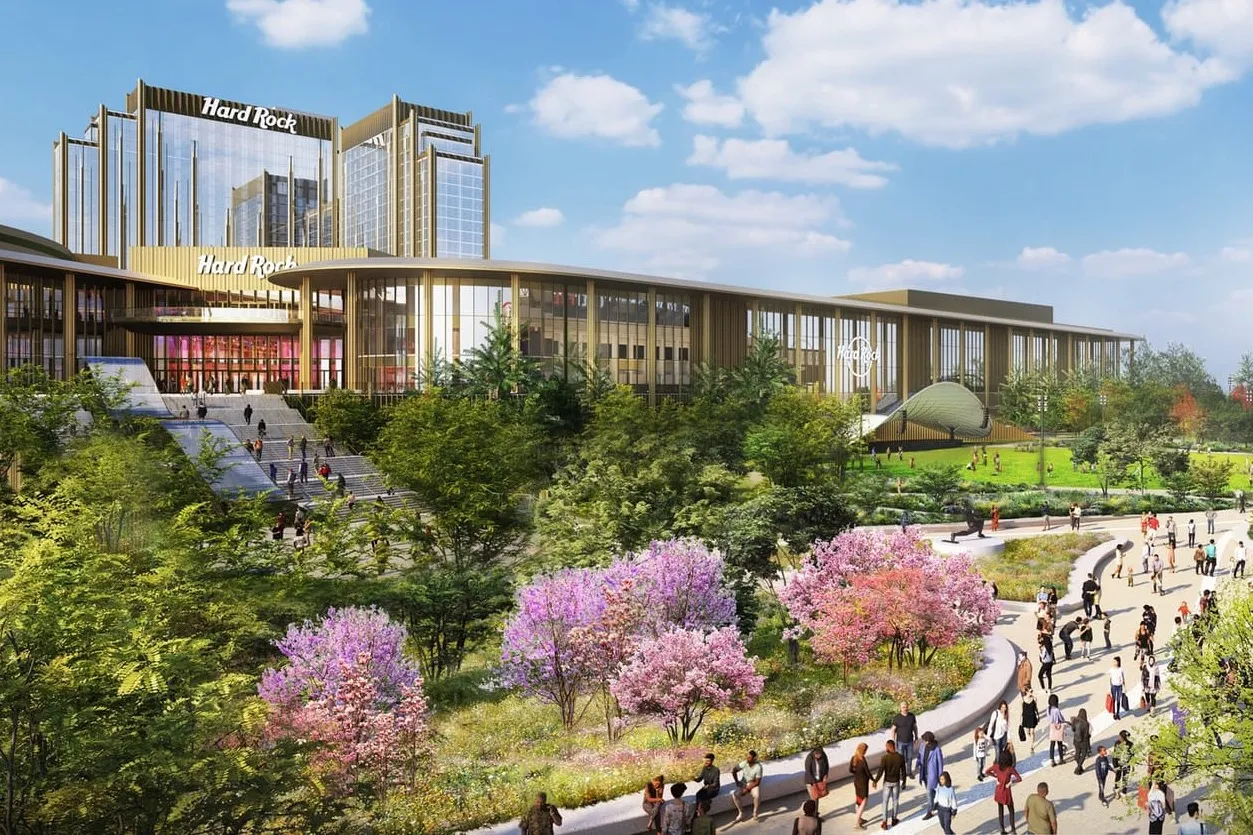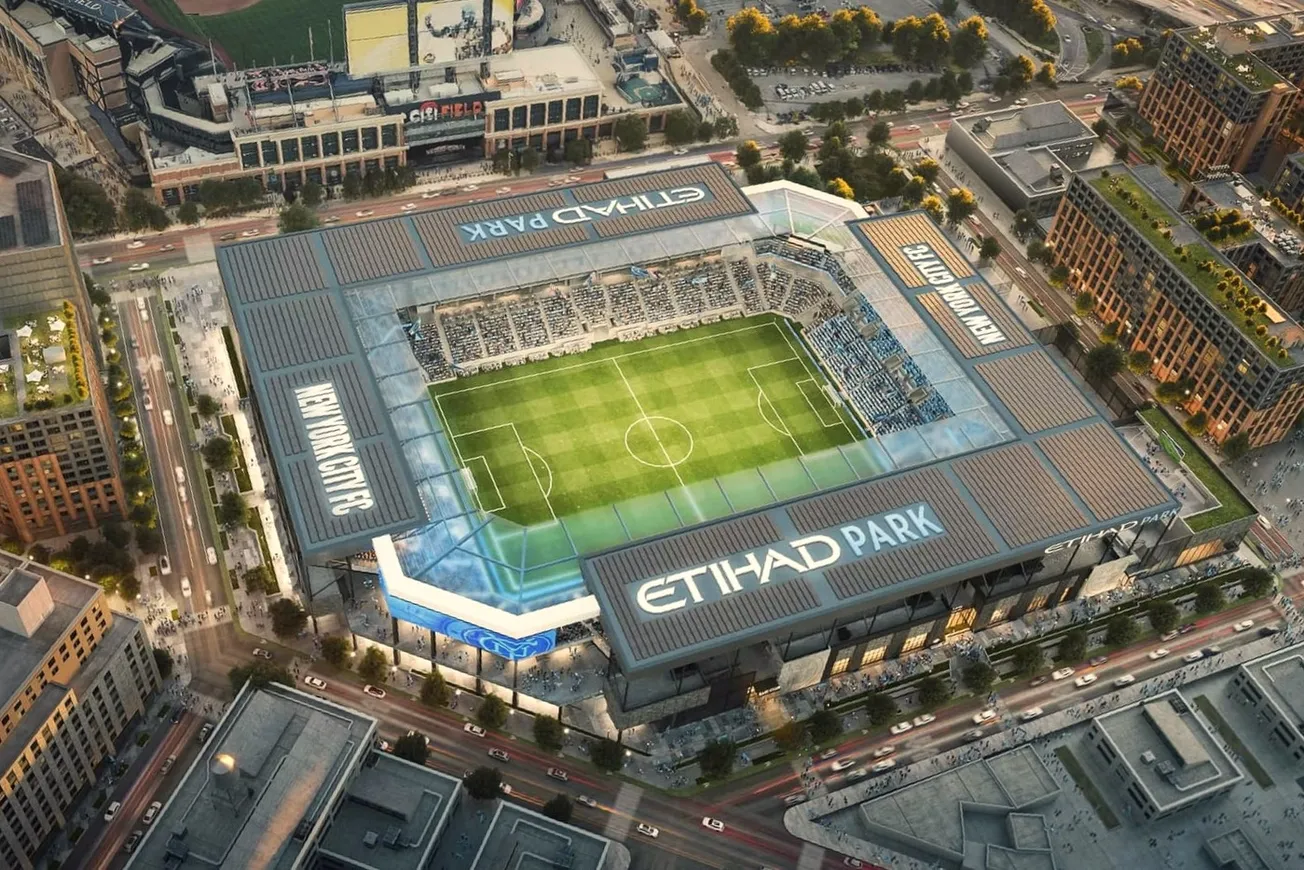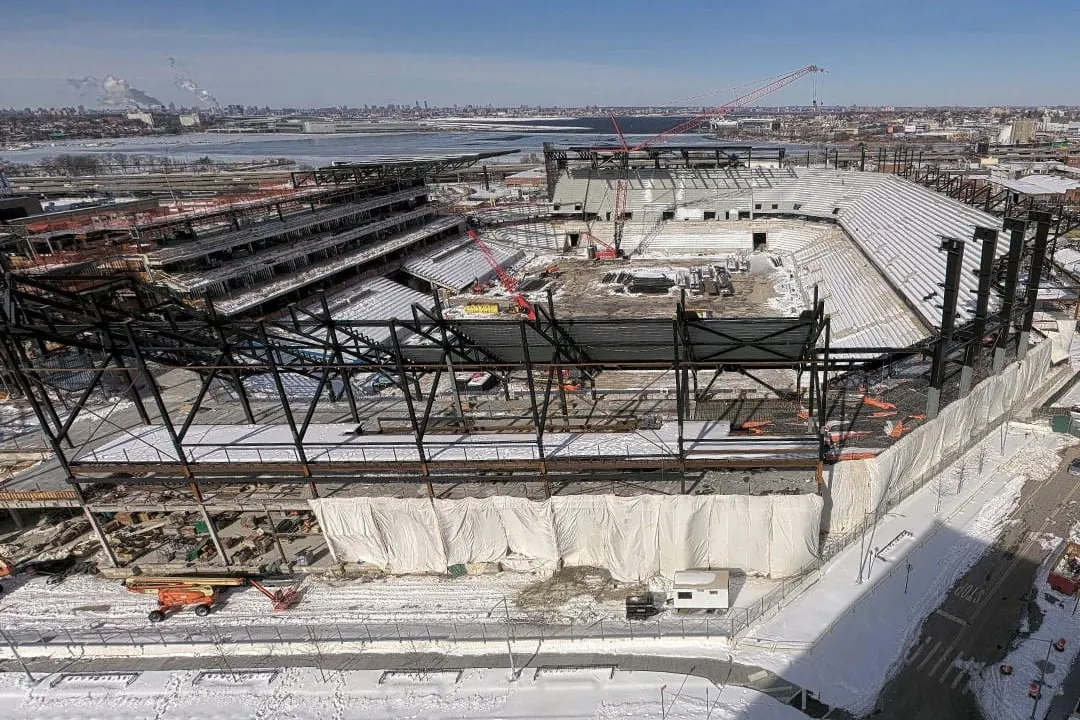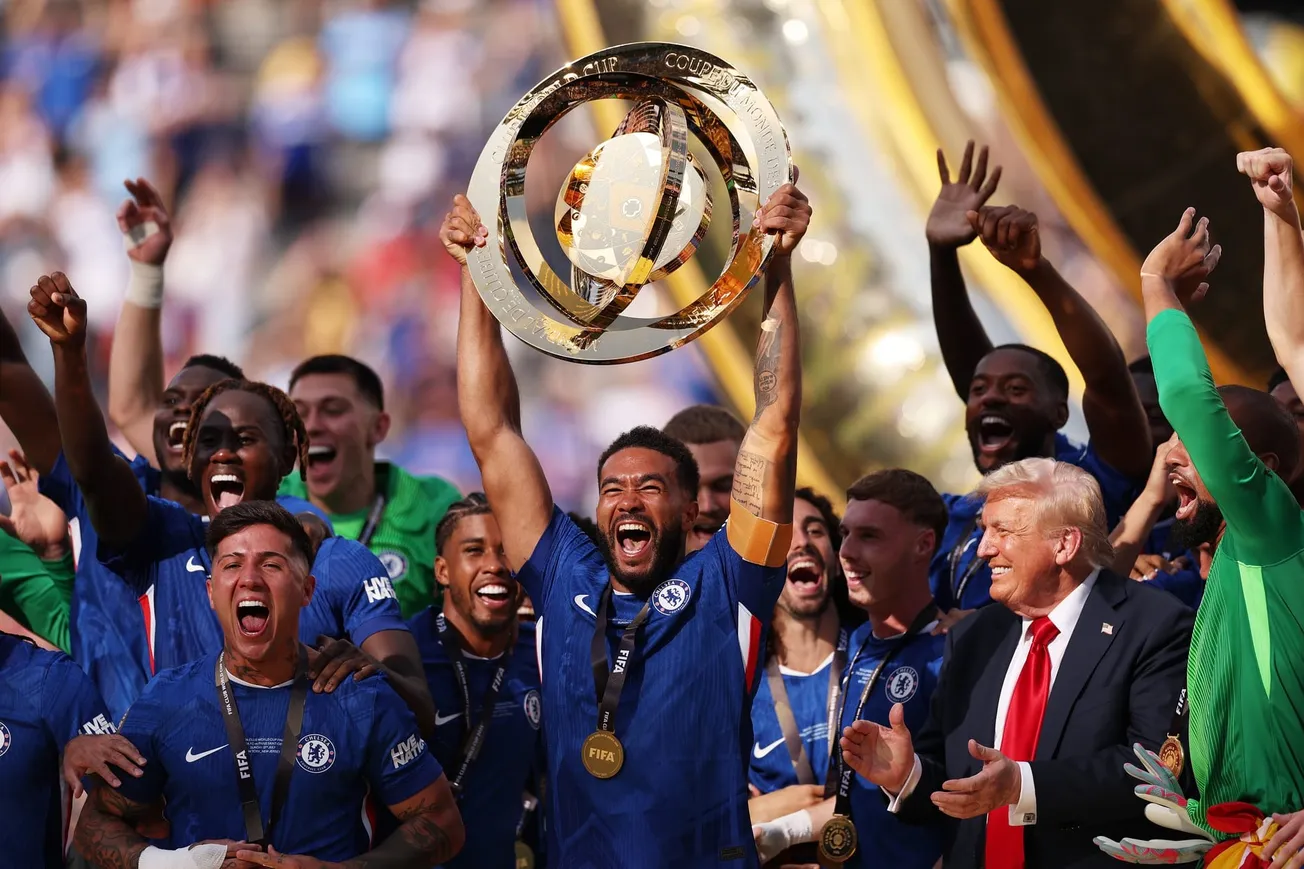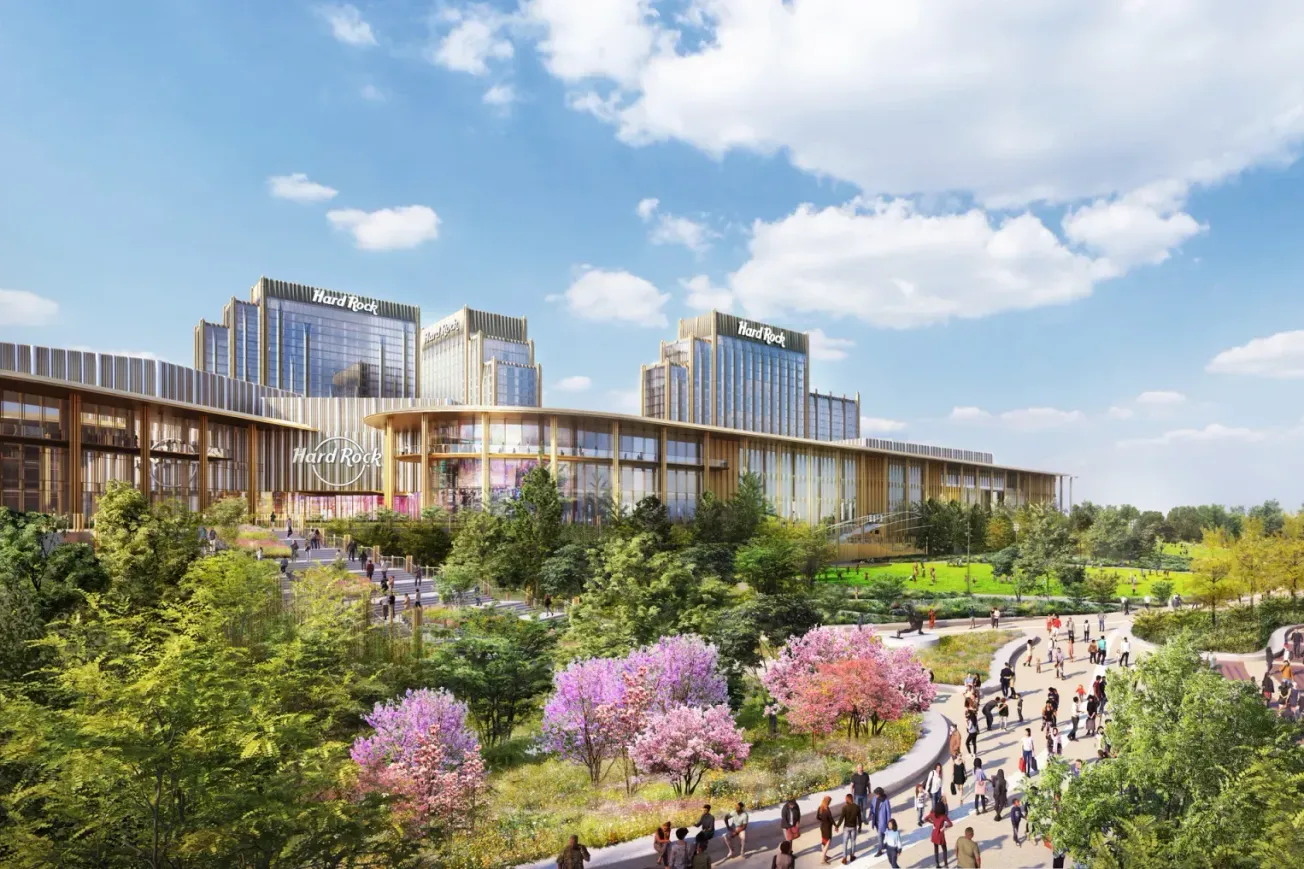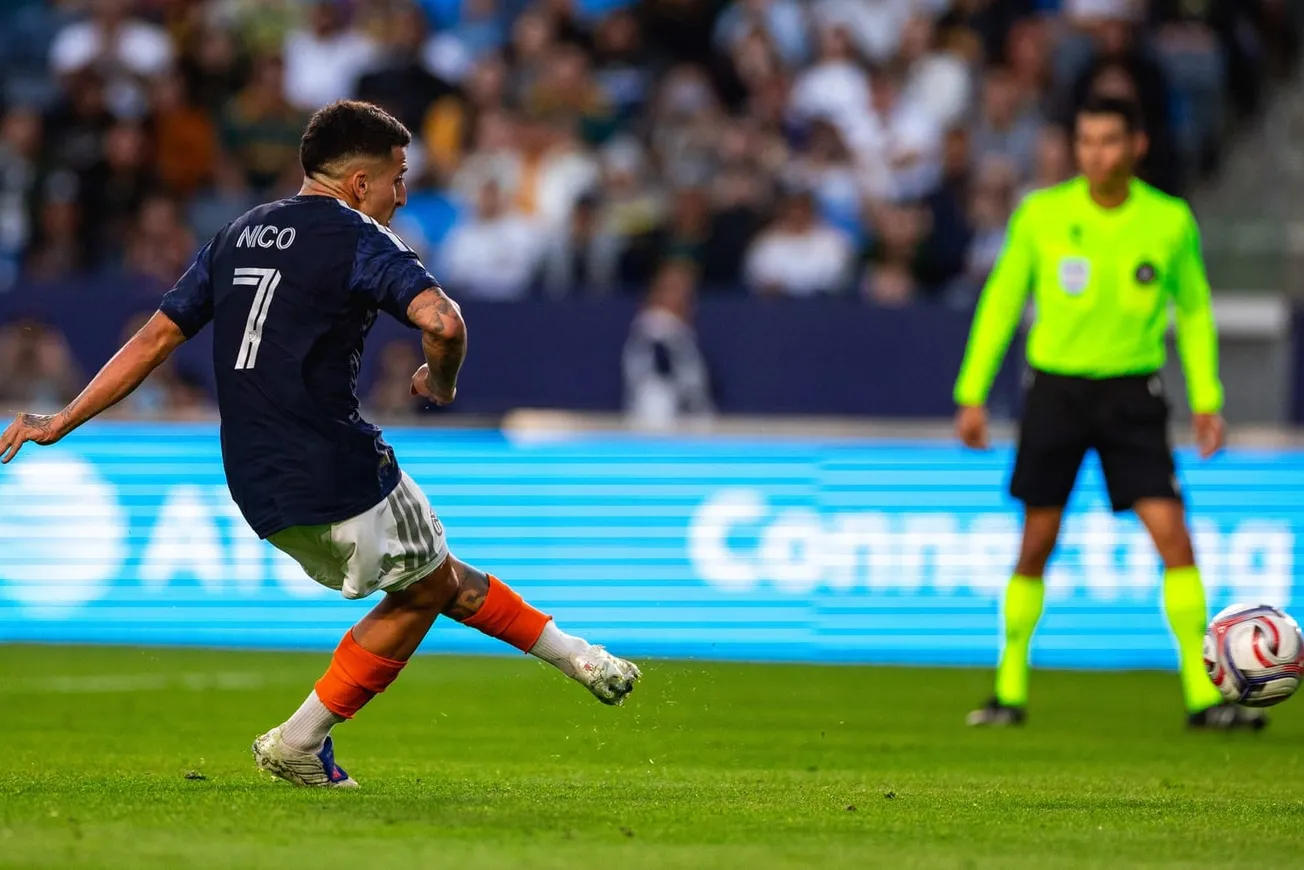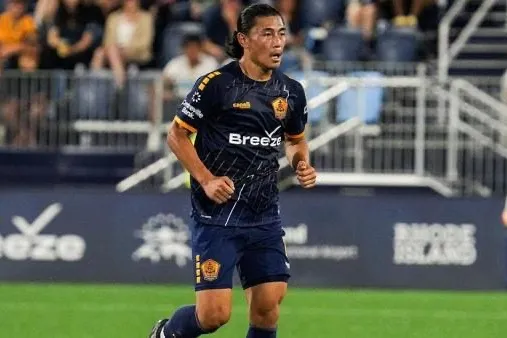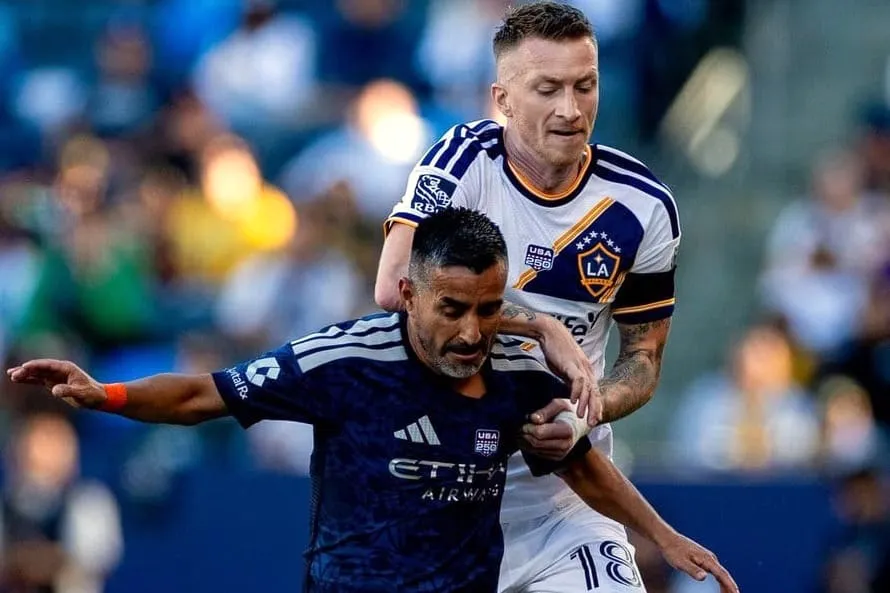New York Mets owner Steve Cohen's grand plan to build a new casino-centered entertainment district atop the parking lots that surround Citi Field is now one step away from becoming a reality.
The $8 billion Metropolitan Park project received unanimous approval from a critical community advisory committee, advancing it as one of four remaining final candidates for three new casino licenses in lower New York State.
Now the New York Gaming Facility Location Board has to make a final decision on who receives these so-called "downstate" casino licenses, ending what's been a years-long process that once included as many as 11 different bidders sprinkled around the city and city-adjacent areas.
What is the "New York Gaming Facility Location Board," how likely is it that the Cohen plan for Willets Point gets picked at this final stage, and what will all this mean for Willets Point, Queens, and the area's other new tenants, namely New York City FC and their new soccer stadium?
Let's go through and answer the 12 biggest questions that you might have as Metropolitan Park now sits on the precipice of total, final approval.
1. Who just voted to approve the Willets Point casino, and what does this approval mean?
Every active bid for a casino had to receive approval, by a two-thirds minimum threshold, from a six-member Community Advisory Committee in order to reach the final stage of consideration for one of the casino licenses. Each bid was considered by its own Community Advisory Committee made up of six people appointed by key local elected officials.
In the case of Metropolitan Park, that meant the committee included appointees of New York Governor Kathy Hochul, New York City Mayor Eric Adams, plus four from more hyper-local politicians. All six appointees (listed below) voted in favor of turning Citi Field's parking lots into a casino.

This is not the final "yes" needed to bring Metropolitan Park to life, but it's the most important local vote of approval received by the casino to date.
2. What other approvals did Metropolitan Park need to get to reach this point?
Remember New York City's uniform land use review procedure – ULURP – from when New York City FC went through it ahead of getting final approval to build Etihad Park not too far from the planned site of Metropolitan Park? Metropolitan Park had its own journey through ULURP and got through it without many hiccups, receiving approval from New York's City Council in March, with the Council voting 41-2 in favor of the proposal. All the rezoning and land modifications needed for the new mega-project were approved as of this spring, setting the stage for the pivotal Community Advisory Committee vote.
3. Wasn't there an issue around the Citi Field parking lots technically being parkland? Did that get resolved?
Yes, the 50 acres of parking spaces on which Steve Cohen and Hard Rock want to build officially counted as parkland in the eyes of New York State, since it was part of Flushing Meadows Corona Park prior to becoming asphalt.
Metropolitan Park required a special bill to be introduced and approved in the New York State legislature "alienating" the acres of parking lot – meaning, allowing the parkland designation to be officially removed in the eyes of the state so that casino-and-hotel-and-more construction can occur.
For a long while, this looked like a sticking point that would keep Metropolitan Park from becoming a reality, because the State Senator representing the casino's region, Sen. Jessica Ramos, staunchly opposes Cohen's casino plan.
The casino looked dead in the water when Sen. Ramos said she wouldn't introduce the needed parkland alienation bill, but all the casino stakeholders found a workaround, recruiting other members of the New York State legislature – State Senator John C. Liu and State Assemblymember Larinda Hooks – to introduce the necessary bill in each chamber and guide it through to a vote of approval. The parkland intended for the casino officially got "alienated" in late May when the New York State Senate voted to approve, not long after the New York State Assembly had also approved the bill.
4. Okay, lots of approvals under Metropolitan Park's belt, but what happens now?
Between now and December 1st, the New York Gaming Facility Location Board – a body convened by the New York State Gaming Commission, the overseer of the whole operation of handing out the casino licenses – reviews the applicants for a final time.
They will then select up to three sites for the Gaming Commission to consider for licensure. Given there are only four finalists under consideration, Metropolitan Park has decent odds to receive a license.
5. How does the New York Gaming Facility Location Board decide who gets recommended for a license?
The five-member board is supposed to base its recommendations largely on which projects offer the most economic development in terms of the total dollar amount invested, the number of jobs created, and the expected revenues produced for the State of New York. Gothamist published a valuable piece on the board and the final steps in the licensing process, which included Brian O’Dwyer, chair of the New York State Gaming Commission, saying of the choices in front of the Gaming Facility Location Board, " The question is, 'Who does best for the community and the state of New York in terms of tax revenues?'"
6. What are the other finalists competing with the site in Willets Point?
The other license-seekers are from Yonkers, the Bronx, and elsewhere in Queens, specifically Jamaica. The competing Queens location, Resorts World NYC, is already a hotel and pseudo-casino with electronic gambling but no live gambling and is proposing a $5.5 billion expansion to go along with the full casino license.
That's similar to the setup of MGM Empire City in Yonkers, where the proposal calls for a $2.3 billion expansion with a full license to go beyond their current electronic gambling and slot machines. Both the Jamaica, Queens, and Yonkers locations also have horse racing on site, via Aqueduct Racetrack and Yonkers Raceway respectively, and both sites have long been viewed as favorites to win two of the three downstate casino licenses given they'd just be "stepping up" and expanding on existing casino-like infrastructure.
That leaves Bally's Bronx over at the foot of the Whitestone Bridge in Ferry Point Park. This is the site of a golf course that would get a $4 billion expansion to include a casino, hotel, restaurants, and the like. It had the bumpiest path to being a finalist in front of the Gaming Facility Location Board, as the New York City Council voted against the project at the land rezoning review stage (ULURP fail), but New York City Mayor Eric Adams intervened and vetoed the Council's vote, allowing the casino bid to live on.
Bally's Bronx proposes adding a 500,000-square-foot casino, a 500-room hotel, a 2,000-person event center, and 4,660 parking spots in new garages to its existing golf course. That golf course was first opened by the Trump Organization, which stands to earn $115 million if the site is chosen for one of these casino licenses.
7. What happened to all the other proposed casino locations?
Three Manhattan proposals – in Murray Hill near the United Nations building, in Times Square, and on the far West Side of Manhattan near the Javits Center – got rejected by their Community Advisory Committees. A potential site in Coney Island in Brooklyn also didn't make it through the Community Advisory Committee, either. A proposal to build a casino in Nassau County, Long Island, at the site of the Nassau Coliseum, fell off the table, as did potential locations in Hudson Yards and in the heart of Midtown on Fifth Avenue in Manhattan. Community support was lacking for all the Manhattan proposals, in particular, making this a contest among outer-borough sites only.
8. What about Metropolitan Park, does it have community support?
It did get that 6-0 vote in its favor from the Community Advisory Committee, and it enjoys the support of most – but not all – local elected officials representing Queens and the areas around the proposed site. Six local community boards from areas of Queens around the Willets Point casino site voted to approve it, as well. Yet there remain notable grassroots community groups still speaking out and rallying in opposition of Metropolitan Park. On Sunday, October 6, hundreds of people turned out to an anti-casino rally, and there's a town hall planned for Sunday, October 19, in Flushing where community members can once more voice their concerns about Metropolitan Park. Polling on the popularity of Metropolitan Park has been mixed, so it's not a universally beloved proposal among the local populace despite getting all the needed legislative and procedural approvals.
9. What are the pros and cons tossed around when debating for or against the creation of Metropolitan Park?
Steve Cohen, Hard Rock, and their advocates promise that Metropolitan Park will come with major renovations to a public transportation hub – the 7 subway station at Mets-Willets Point – and that the creation of the mega-development will lead to $1 billion in "community benefits" and the creation of many thousands of jobs. Detractors can point to studies that show bringing casinos to densely-populated urban areas increases the amount of gambling done (and gambling losses accrued) by residents of those densely-populated urban areas; there's also the fact that Metropolitan Park permanently eliminates what had been officially designated as acres of parkland, even if it had become parking many decades back.
Local community and climate activists created an alternate proposal, called Phoenix Meadows, that would have turned the acreage entirely into parkland, sans the casino and entertainment bits. Another point of contention: Those thousands of additional parking spots, thus the assumption of all those additional cars traveling to Metropolitan Park. While there's been talk floated of adding to the public transit options in the area by creating a New York Ferry stop at Willets Point, that remains very much in "talked about only" territory.
10. What’s the timing like for Metropolitan Park construction, if approved?
It'll take four years but construction could begin, in some form, as soon as this coming January. Still, that timeline would put it at 2030 at the earliest for this big new destination to be up and running.
11. Etihad Park, NYCFC’s stadium, is opening in 2027. What would a final Metropolitan Park approval mean for the soccer stadium?
The area is already heavy on construction, given the building of that NYCFC stadium plus the thousands of new units of housing, and all else that comes with Phases I and II of the redevelopment of Willets Point. Traveling through an active construction zone might just be a reality for the first handful of seasons spent attending NYCFC home matches in The Valley of Ashes.
The main point of intersection between Metropolitan Park and NYCFC revolves around parking. Etihad Park and NYCFC are set to rely on Citi Field's parking lots to handle fans who drive to matches — the negotiations over a parking agreement between the Mets and NYCFC were a minor sticking point during the soccer stadium’s ULURP approval process, resolved as the two sides struck an agreement for NYCFC to lease thousands of spots for use on days when matches occur.
When you hear "casino to be built on Citi Field parking lots," you might assume parking availability is about to drop for soccer attendees, but the opposite is true. Metropolitan Park would add over 6,000 new parking spots to the existing 7,423 currently surrounding Citi Field. The number of spots won't be an issue, but the amount of traffic and congestion in Willets Point might be significant once there are thousands of new residents in the area, plus those going to see NYCFC, plus those visiting Metropolitan Park's new hotel, casino, entertainment venue, or food hall.
12. In the end, will Metropolitan Park get approved and licensed?
It's still not certain, but a license for Cohen's casino now looks more likely than not. Metropolitan Park promises the most billions in capital invested up front while also claiming to generate $1 billion in community benefits, and that's not to mention the other promises of a renovated Mets-Willets Point 7 subway station, plus the proposed Flushing Skypark greenway, a pedestrian and cyclist bridge that would cross Flushing Creek and connect downtown Flushing and Willets Point. It also has near-unanimous support among elected officials at city and state government levels, with Sen. Ramos the notable exception. If the two "racinos" in Yonkers and Jamaica are shoo-ins, it might be Bronx vs Queens in a very baseball-like rivalry for the final license.
Bally's Bronx faced a City Council vote of rejection and needed to be saved by Mayor Adams, who is not exactly beloved and is on his way to officially being a one-term Mayor, having dropped out of the race for re-election. Yet it's still an option in front of the State in the final round, despite facing its own mix of community and elected official opposition. If it comes down to an either/or between Bally's Bronx and Metropolitan Park, it's hard to see the Cohen bid losing out. These days, Cohen's biggest losses seem reserved for the New York Mets.

